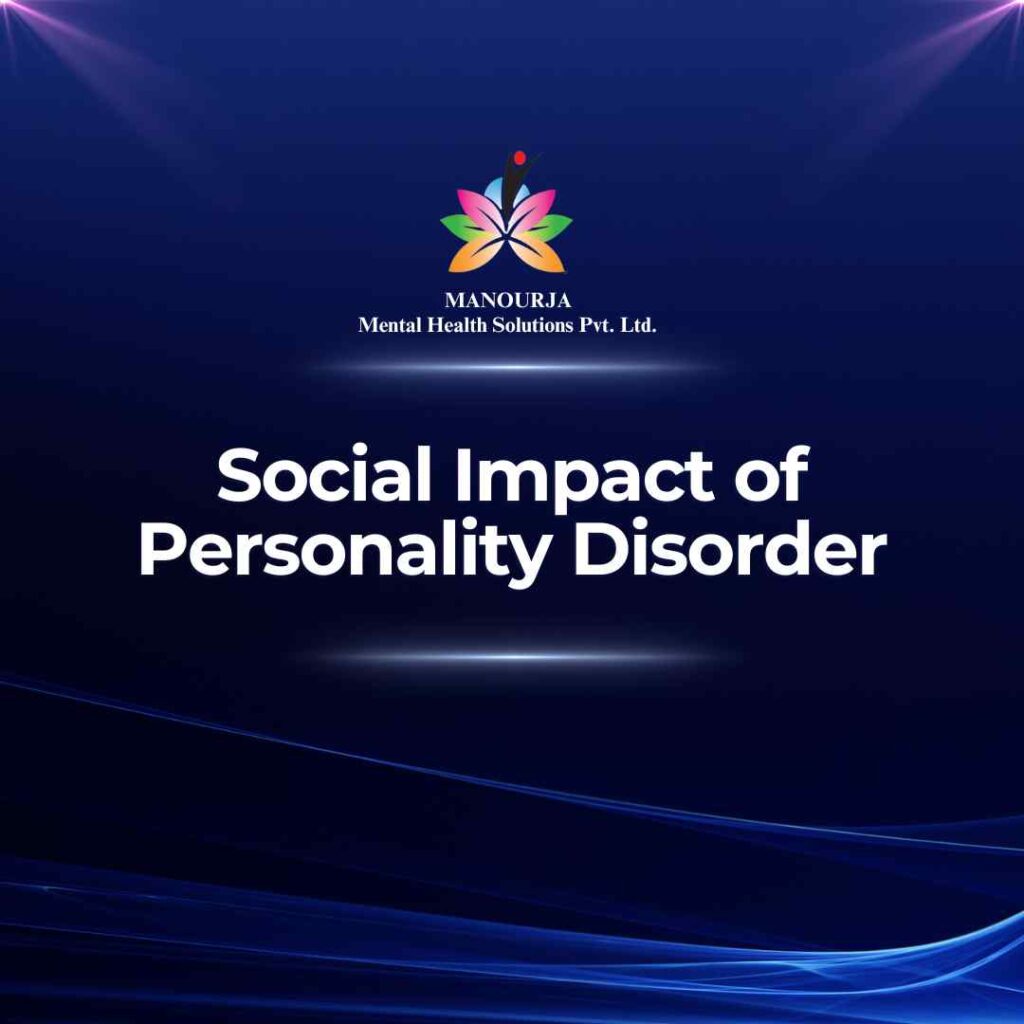Social Impact of Personality Disorder

Personality disorders can have a profound and often disruptive impact on social interactions and relationships, creating a ripple effect that extends into various areas of personal and communal life. The social impact of these disorders varies depending on the type of personality disorder and its severity, but several common themes are observed across most types.
Here’s a detailed look at the social consequences of personality disorders:
Interpersonal Relationships
- Difficulties in Forming Close Relationships: Individuals with personality disorders often struggle with issues such as fear of rejection, distrust, or a lack of interest in intimacy, which makes it challenging to form and maintain close and healthy relationships. For instance, those with avoidant personality disorder may desire close relationships but avoid them due to fear of being rejected.
- Unstable Relationships: People with certain personality disorders, such as borderline personality disorder, typically experience intense but unstable relationships. They may rapidly oscillate between extreme closeness and extreme dislike or anger toward their relationship partners, which can be distressing and confusing for all involved.
Social Functioning
- Social Withdrawal or Isolation: Some personality disorders, particularly schizoid and avoidant types, lead to significant social withdrawal. Individuals may show little interest in social or personal relationships, preferring solitude.
- Inappropriate Social Behavior: Persons with certain disorders, such as antisocial personality disorder, may engage in behaviors that are socially unacceptable, such as lying, manipulating others, or breaking laws and social norms without remorse.
Conflict and Aggression
- Increased Conflict: Personality disorders can lead to frequent conflicts with others, including family members, colleagues, and friends, due to misunderstandings, intense emotions, or inappropriate responses to situations.
- Aggressive Behavior: In some cases, such as with antisocial or borderline personality disorder, there may be instances of verbal or physical aggression, which can further strain social interactions and lead to legal consequences.
Workplace Challenges
- Difficulty Maintaining Employment: The challenges in interpersonal functioning often extend to the workplace, where individuals may struggle to maintain professional relationships or adhere to organizational norms and expectations.
- Performance Issues: Emotional dysregulation, lack of motivation, or high levels of stress commonly associated with personality disorders can impair job performance and productivity.
Community and Societal Interaction
- Reduced Participation in Community Activities: Social withdrawal or conflict can lead to decreased participation in community or social activities, contributing to a sense of isolation and alienation.
- Strain on Public Systems: Individuals with severe cases of personality disorders, particularly those involving aggressive or criminal behavior, can place a strain on legal and health services.
Stigma and Misunderstanding
- Stigmatization: People with personality disorders often face stigma not only from the public but also from healthcare providers, which can deter them from seeking help. This stigma arises from misconceptions about their behavior and the nature of personality disorders.
- Misunderstanding from Others: Due to the complex and often hidden nature of personality disorders, behaviors stemming from the disorder can be misunderstood as intentional or malicious, leading to strained relationships and social isolation.
Impact on Family Dynamics
- Family Strain: The intense emotional expressions and unpredictable behavior of someone with a personality disorder can create significant stress and strain within family units. This can affect the emotional and psychological well-being of all family members.
Long-term Social Outcomes
- Persistent Loneliness: The combination of relationship instability, social withdrawal, and conflict can lead to long-term loneliness and a reduced support network, which are linked to poorer mental and physical health outcomes.
Addressing the social impacts of personality disorders is crucial and requires comprehensive treatment strategies, including psychotherapy, family counseling, and social skills training. Effective management not only improves the quality of life for the individuals affected but also for those around them, enhancing their overall social functioning and integration.
At MANOURJA, we believe in the transformative power of counseling. Our experienced therapists offer a safe and supportive space where you can explore your thoughts, emotions, and challenges. Through personalized counselling sessions, we’ll work together to develop coping strategies, build resilience, and achieve lasting positive change. Discover the path to a healthier, happier you with MANOURJA counselling services.
MANOURJA Rehabilitation Services
At MANOURJA, we’re dedicated to helping you in rebuild your life, after difficult times. Our rehabilitation services focus on understanding what you need to move forward, whether you’re recovering from addiction, trauma, or any psychological – social challenges. We create personalized plans, that are all about helping you, regain your strength and find hope again. With a caring team by your side, you’ll have the support to make real progress and take steps toward a brighter, healthier future
